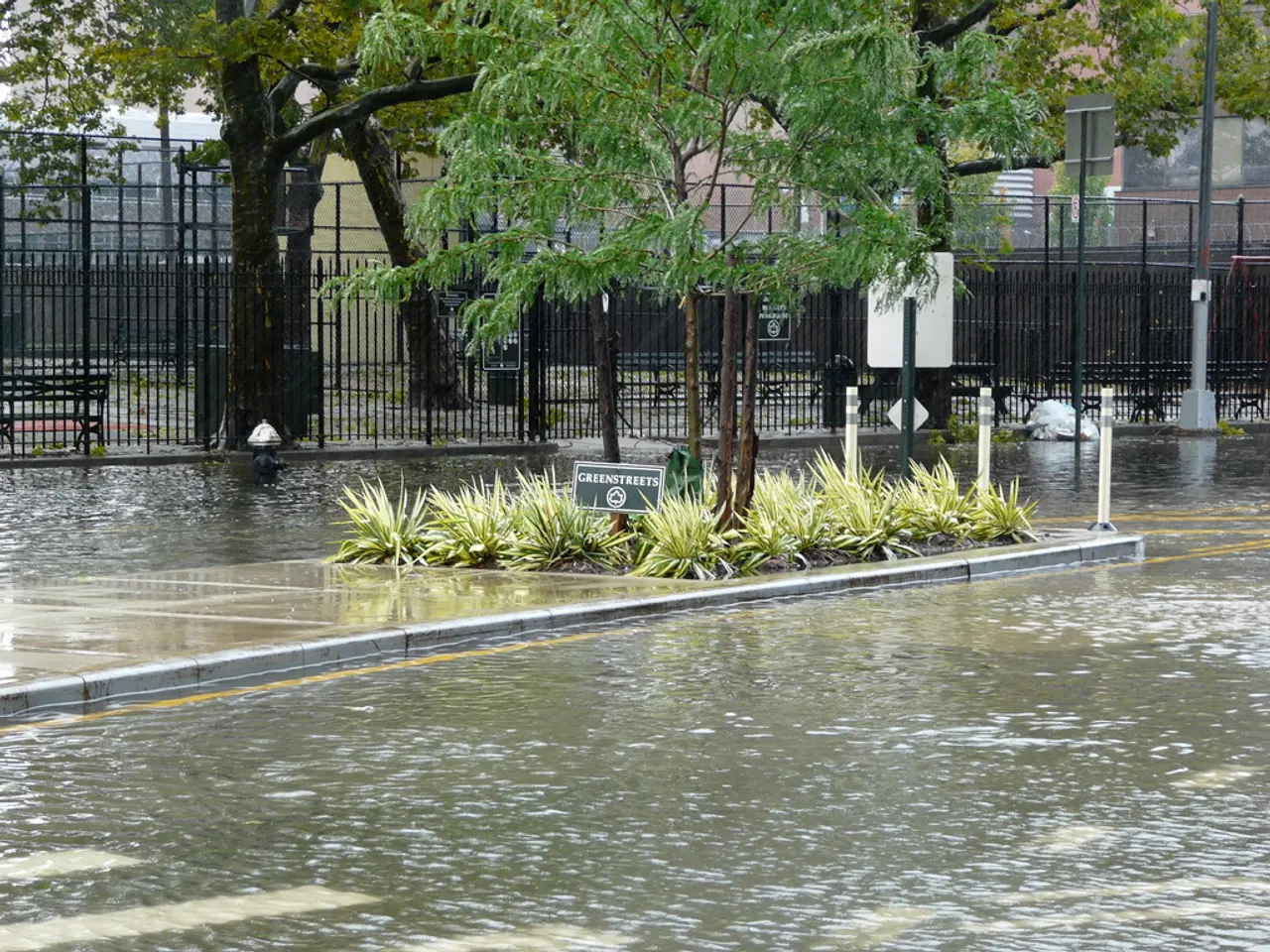Southwestern regions to face water shortage issues by 2050
In the face of climate change, Baden-Württemberg, a region in southwest Germany, is taking proactive steps to ensure a sustainable water supply for its municipalities.
The state is currently conducting an investigation into the current infrastructure situation in all cities and municipalities as part of the Master Plan for Water Supply. By 2026, this comprehensive assessment will have examined all counties and municipalities through a climate check, ensuring water supply resilience until 2050. So far, the cities and municipalities in 25 districts have been examined, with the remaining districts to follow soon.
Climate change is already significantly impacting water supply in the region, causing low groundwater levels, dried-up riverbeds, and water withdrawal bans in hot months. A warmer climate leads to less water in our latitudes, resulting in more evaporation and less rainwater reaching the groundwater due to dried-out soils.
To address these challenges, the Masterplan for Water Supply in Baden-Württemberg is providing nearly €88 million by 2026 for adaptation efforts. Municipalities could prepare for water scarcity by developing new water sources or optimizing their facilities. Some communities could connect to a regional water supply, such as the Lake Constance Water Supply, but decentralized supply remains the priority.
The Environment Minister, Thekla Walker, states that there is currently no risk of water rationing in Baden-Württemberg, but there are restrictions on water withdrawal for irrigation in some districts. However, the ministry predicts that around half of the municipalities in the country will have trouble covering water consumption during peak times by 2050. Currently, around a quarter of municipalities struggle to cover peak water demand during prolonged droughts.
To counteract decreased groundwater recharge and other climate impacts, the investigation is checking whether supply can still be secured in 2050 and what measures each municipality should take to ensure long-term water supply. The Minister President of Baden-Württemberg, Winfried Kretschmann, has stated that these issues will worsen in the future. To avoid distribution conflicts, Baden-Württemberg wants to act early and increase funding programs.
The Nature and Biodiversity Conservation Union (NABU) suggests that federal infrastructure funds should also be invested in areas that act like a sponge, such as forests, wetlands, floodplains, and humus-rich soils, to help with water storage and release. The Main-Tauber district, for example, has created a solid foundation for future water supply adjustments, with ongoing reviews and responsibility shared among politics, administration, water providers, and citizens to use water carefully.
Results from the investigation are expected next year. In the meantime, cooperation between communities could help balance the supply during extreme heat. For 2025, €64 million is available for preventing significant increases in water fees, and for 2026, around €88 million is allocated to ensure a sustainable water supply for Baden-Württemberg.
Read also:
- visionary women of WearCheck spearheading technological advancements and catalyzing transformations
- Recognition of Exceptional Patient Care: Top Staff Honored by Medical Center Board
- A continuous command instructing an entity to halts all actions, repeated numerous times.
- Oxidative Stress in Sperm Abnormalities: Impact of Reactive Oxygen Species (ROS) on Sperm Harm








